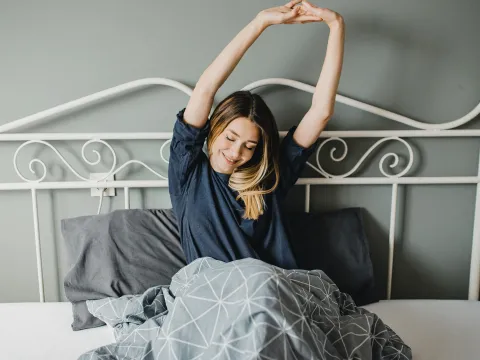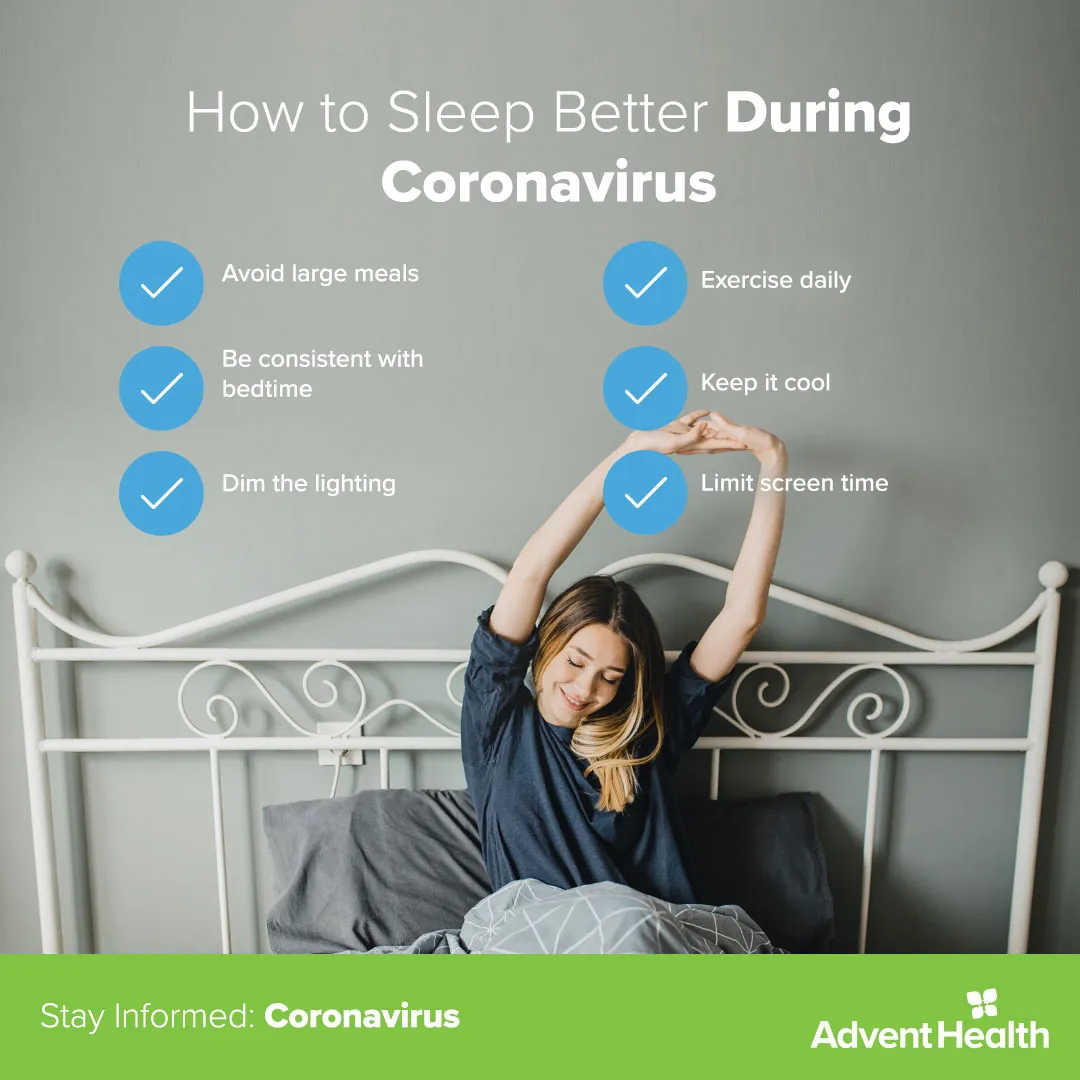- AdventHealth

To maximize your well-being during this stressful time, try to improve your sleep schedule so you can wake up feeling more whole and energized, regardless of what’s in store for the day ahead.

How Much Sleep Is Enough Sleep?
How much sleep are you getting lately? Sometimes we all cut back on sleep because of work, sleepless kids or even to squeeze in one more episode of a favorite show — but a lack of sleep can catch up to us quickly and negatively impact our health and well-being. Especially now, while our day-to-day routines have likely been put on hold due to coronavirus, it’s crucial make sure sleep is still a regular part of your routine, even if nothing else seems to be.
The American Academy of Sleep Medicine and the Sleep Research Society recommends that adults aged 18 to 60 have seven or more hours of sleep per night. For teens aged 13 to 18, this number increases to eight to 10 hours per night, and from six to 12 years, nine to 12 hours per night.
Does that sound like your regular sleep schedule?
Of course, we’ve all felt the repercussions of a bad night’s sleep, as even one night can have you feeling the effects the following day. Being tired, irritable, less productive and overall down makes for a bad day on top of a bad night. But if the lack of sleep becomes a habit, you may be at an increased risk for obesity, diabetes, high blood pressure, coronary heart disease, stroke and poor mental health, according to the Centers for Disease Control and Prevention.
Consider the following tips to help you sleep better.
Habits to Help Improve Your Sleep
1.Avoid large meals
Bedtime snacking may be one of the reasons you have trouble falling asleep or staying asleep. Bigger meals take longer to digest than light snacks, so if you’re frequently eating late dinners or not-so-light snacks, you may feel heartburn or general discomfort while you lay down to sleep.
2.&Be consistent
Are you going to bed at the same time each night? How about waking up at the same time each morning — even on weekends? Life can get in the way of keeping this consistency, but it is very important to achieving a better rest night after night.
3.Dim the lighting
Bright light in the evening can disrupt your quality of sleep. As you begin to wind down for the night, consider dimming your lighting so your eyes can start adjusting for bedtime.
4.Exercise during the day
Being physically active during the day helps burn energy and ultimately helps you fall asleep more easily at night.
5.Keep it cool
While we’re sleeping, our bodies naturally cool off. Lower temperatures help you achieve a deeper, more restorative sleep.
6. Limit screen time
Especially right now while you might have trouble stepping away from the news, set a cut-off time for phones, televisions and tablets that’s at least 30 minutes before your usual bedtime. Staring at the light of screens can disrupt your body’s internal clock and rhythm, making you feel more awake.
While so many things may feel out of our control because of the changes brought on by coronavirus, a better night’s sleep can have you feeling more rested and ready to take on each day.
Find Time to Find Rest
If you're seeking more information on how to prioritize rest and feel your best, look to the whole-health experts:Find a physiciannear you.


